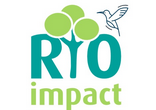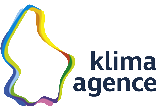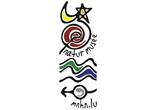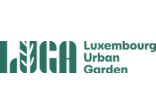
Bee keeping at the Cargolux HQ
Since May 2022, 10 beehives have been installed in the grassland in front of the Cargolux HQ in Luxembourg. The units are part of a broad project, led by lux-Airport, to optimize biodiversity on airport grounds.
The vicinity of the HQ is also home to insect hotels built by the airport community employees, and dry hedges that encourage insect and bird development.
The hives are maintained, and the honey harvested by Luxembourg-based company “Un chalet pour les abeille”, owned and run by Nicolas Bechdolff. Passionate about beekeeping, Nicolas worked in a bank for years before yielding to his true calling and training in professional beekeeping in France. After originally running the company in parallel to his day job, the success was so that he eventually switched over completely.
Nicolas personally takes care of all the hives he installs, including those at the HQ and according to him, the environment is quite favorable for the colonies. Indeed, the area is not directly under the flight path and offers a wide range of native flora to allow for thriving hives. There is also forested land in close proximity and since it is a peri-urban area, there is limited pesticide contamination which could harm the bees.

The hives are tended every week to 10 days and monitored for their global well-being. The year since their installation has been a little challenging with a cold spell in Spring and drought over the Summer but Nicolas is confident that they will thrive this year. “There are always a few hiccups the first year as the bees acclimate to their environment. The hives were checked mid-April and although the weather is still fresh and quite humid, they are starting to go outside which is a good sign. The Cargolux colonies are actually very docile, and I look forward to visiting them and watching them evolve over the months”, says Nicolas.
Each hive is home to a queen, who can live up to 5 years, and houses between 50 and 80,000 individuals at the height of pollination season. Foraging bees, who collect the pollen, have an average lifespan of 6 weeks and can carry 35% of their bodyweight worth of pollen and nectar on each trip. The analysis of pollen at the HQ shows that most of it stems from flowers native to the area and the resulting honey can therefore be labeled as “flower honey”.
The Cargolux team is pleased to be part of this adventure and its contribution to preserving local biodiversity. The honey produced in the Cargolux hives yielded a limited production in 2022. The team is now looking forward to the next harvest and hopefully higher volumes !.
Press release from Cargolux
















